Did you know that a fat sugar glider gets tired faster, is lazy, and could die faster?
Being obese exposes pet gliders to too many health issues that could kill them.
But how do you even know if your pet sugar glider is obese?
I went looking and found the below helpful information on how to spot an obese sugar glider and how to prevent that from happening.
Read on
Table of Contents
Can Sugar Gliders Get Overweight?
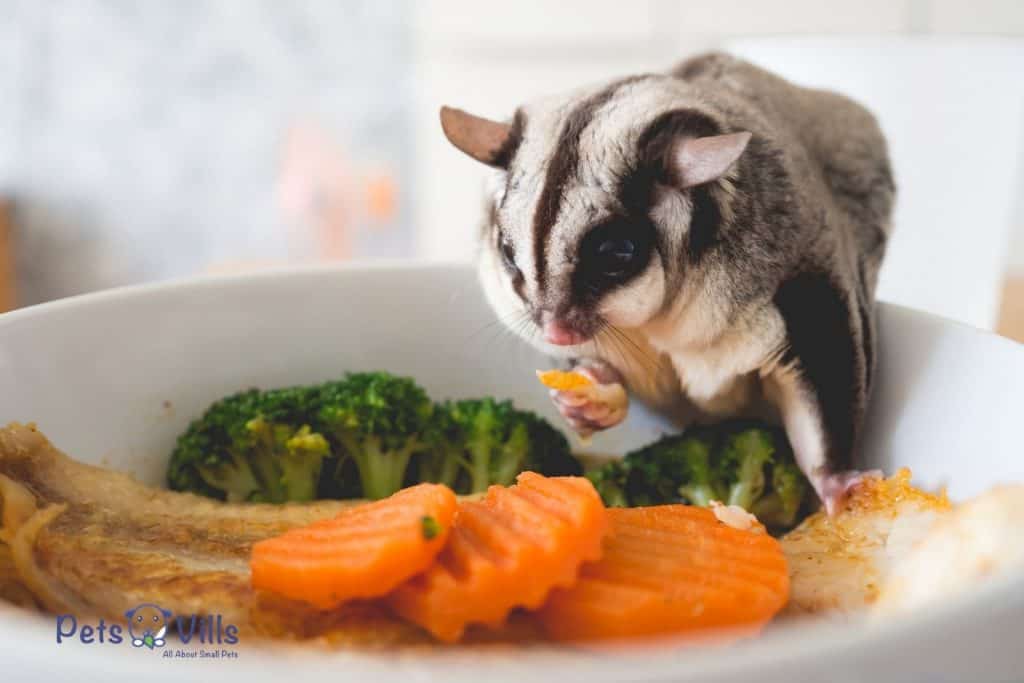
Yes, critters can get overweight. While weight gain is normal for most pet gliders, when it passes a certain point, then there could be problems.
Some people find fat pet gliders are somewhat cuter than their lean counterparts. But what you need to know is that it’s perilous to raise fat captive sugar gliders.
While wild gliders need to work hard to get food, captive gliders can relax and wait for their caregivers to give it to them. Most sugar glider owners love to spoil their sugar babies (I’m guilty as charged here.)
But then that’s precisely how you find yourself raising an obese sugar glider. So how do you know your little marsupial is fat? Is there an acceptable weight for a critter in captivity?
Yes, there is.
How Much Should Sugar Gliders Weigh?
According to Dr. Rick Axelson, the average male sugar glider weighs 100 to 160 grams. Female gliders weigh 80 to 130 grams. (1) That’s how much a typical sugar glider should weigh.
An overweight sugar glider could weigh twice those numbers! Here is an example of one that weighs 240 grams but should weigh much lesser than that.
Such body mass makes a glider incapable of doing the most basic things. For instance, Mr. Moe, in the above video, can no longer glide!
Now imagine if he were in the wild and couldn’t glide? That would mean certain death from predators.
What Does An Overweight Sugar Glider Look Like?
Since gliders are small, it is common to ask how to tell if a sugar glider is fat? Overweight sugar gliders have a large body mass that looks puffy and plump.
They start becoming lazy and might no longer climb up the climbers in their cages.
See how the fat glider in the above video barely climbs up the cage? That’s what a critter with excess body fat content looks like.
Although fat gliders might appear like active animals, they aren’t okay, so you need to check their body weight regularly.
ALSO READ: Are Sugar Gliders Hypoallergenic?
How to Tell if My Sugar Glider is Fat?
Sometimes, you might think your pet gliders are at their best when they are fat. However, there are usually some tell-tale signs your shuggie is fat.
You might think you know everything to know about sugar gliders, but these signs do confuse most owners.
4 Signs Of Obesity In Sugar Gliders
1. Low Activity Levels
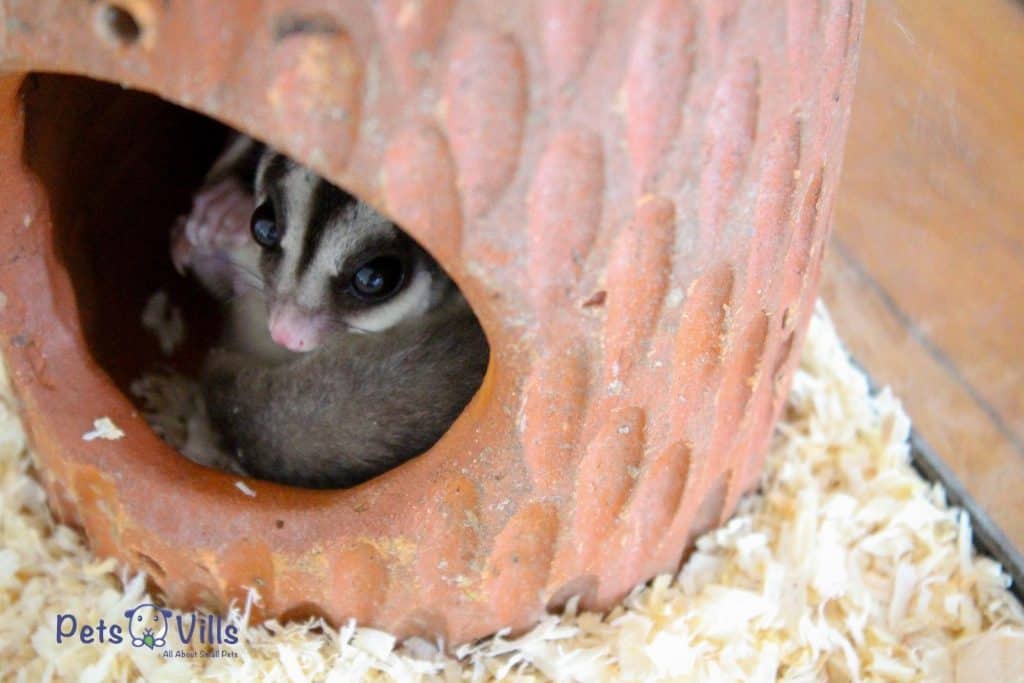
A fat glider is usually lazy and lethargic. Nothing excites it. I saw this with one of my gliders when the activity levels gradually reduced. After some time, when I called to her or opened the cage, she wouldn’t rush out to meet me.
She wouldn’t play as much as she used to before. That’s when I knew something was wrong.
2. Sugar Glider Health Issues
Fat gliders have an abundance of health problems. If you see health issues that you haven’t seen before, it could be due to obesity.
3. They Tire Easily
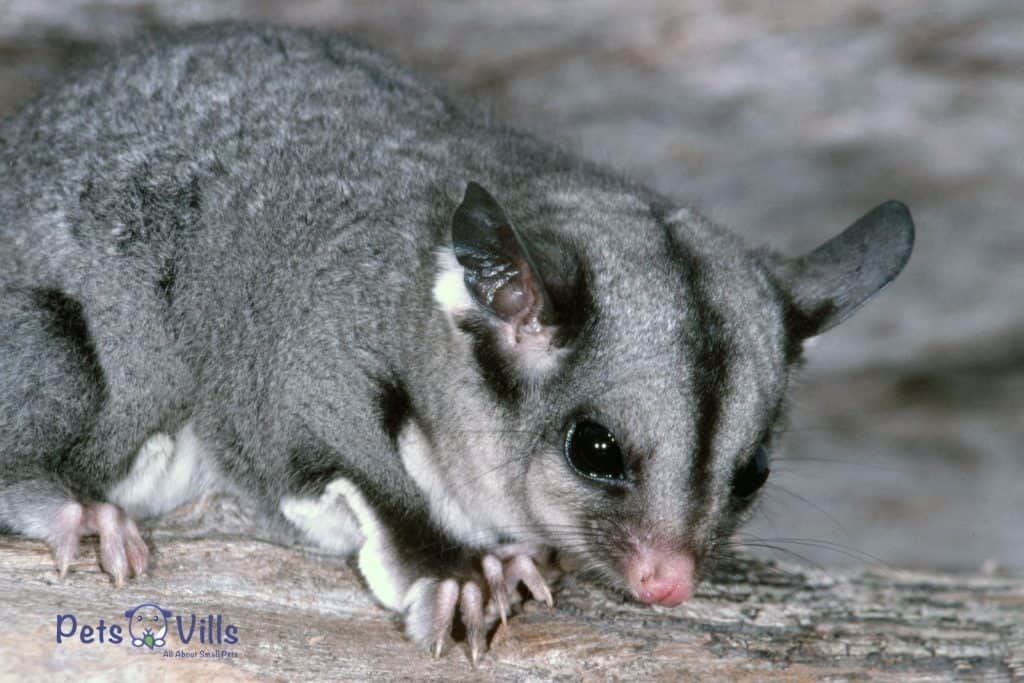
It is common to see obese people panting after climbing a short flight of stairs. They tire too fast. The same applies to your little marsupials. A large body mass might make them tire faster hence lower activity levels.
4. You Can Feel the Fat
If you pet your sugar baby daily, you can tell when it gets fat. You start feeling the noticeable change in its weight whenever you carry it. You might get a sudden realization of oh my, my sugar glider is getting fat!
What Causes Obesity in Sugar Gliders?
Humans know consistently eating sugary foods might cause their weight to hit the roof. Is it the same for gliders, though? If your pet shows some of the signs mentioned above, you will probably ask why is my sugar glider so fat?
Let’s see what can lead to overweight sugar gliders.
1. An Improper Diet
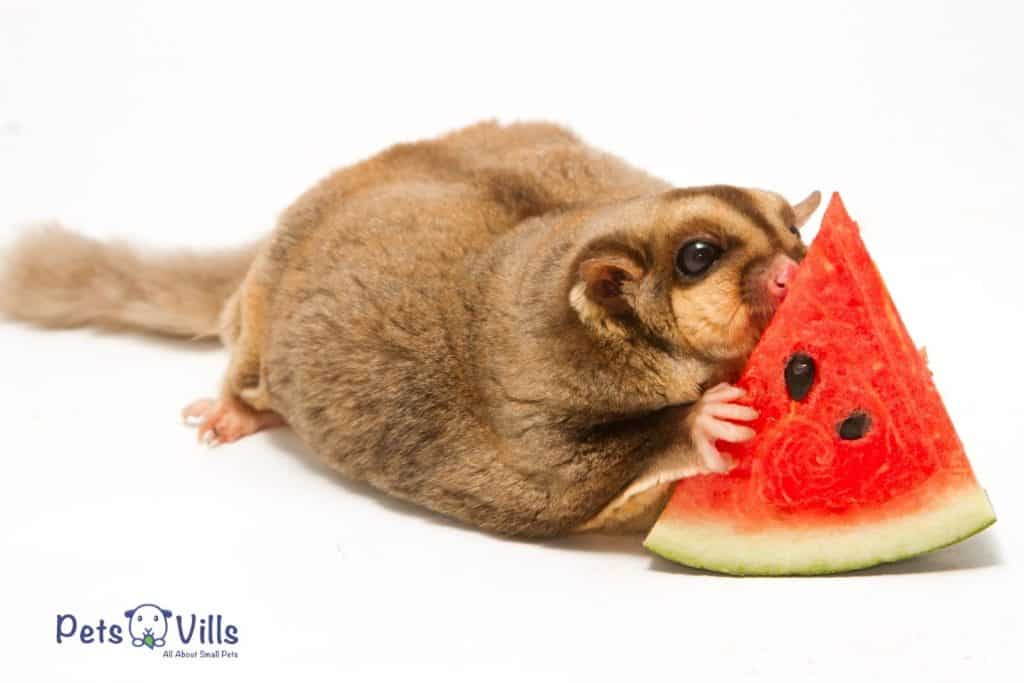
To cite a famous cliche, you are what you eat. That doesn’t only apply to humans but pet gliders too. Dr. Gregory Rich of the VCA Animal Hospitals says an improper diet will lead to obesity, among other health issues (2).
These sweet gliders have unique nutritional requirements, and I understand they can be difficult to replicate. So might start asking are sugar gliders easy to take care of?
However, most owners lose it when they spoil them with sugary foods. The proper diet for sugar gliders needs a balance of different foods.
You can’t feed your pet fresh fruits daily even if they are among their favorite foods. That will lead to obesity.
2. Lack of Physical Activity
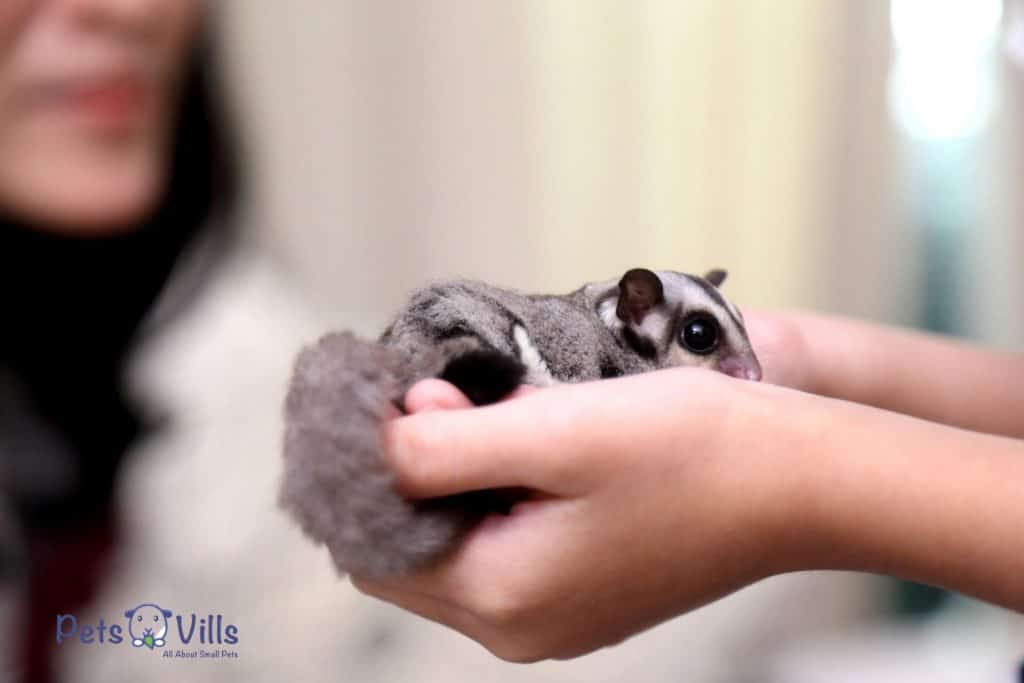
Dr. Robert Ness, a glider savvy vet, says gliders need room in their cages for exercise (3). It helps that the little marsupials are naturally playful. When they don’t exercise, they’re likely to get fat.
Like you, your pet also needs to exercise several times each day to avoid becoming overweight.
Obesity in Sugar Gliders: Impact On Health?
Obesity has severe consequences for the health of sugar gliders. Dr. Rosemary J Booth says obesity in gliders may lead to liver, kidney, and heart disease (4). Those are diseases any sugar glider owner wouldn’t want in their pet.
Obesity by making your pet lazy will interfere with their sleeping schedule. Since they don’t feel like doing anything, such gliders sleep all the time, drastically affecting their sleeping patterns.
Finally, obesity can also lead to arthritis since the huge body mass exerts pressure on the pet’s bones.
What to Do If My Sugar Glider is Overweight?

When you determine your pet is overweight, you can do two things.
1. Shift to a Healthy Diet
An improper diet is a leading cause of obesity in sugar gliders (4). Therefore the best way to combat obesity is to shift to a more balanced diet.
Your veterinarian can help you determine the right foods to include in the critter’s daily diet.
Also, you could try the various commercial sugar glider diets, such as the tpg diet and the BML diet. Beware of rushing the change. It should be gradual to avoid stressing the sugar baby.
When planning your pet’s healthy diet, it is good to have an understanding of sugar glider allergies.
2. Increase Excercise
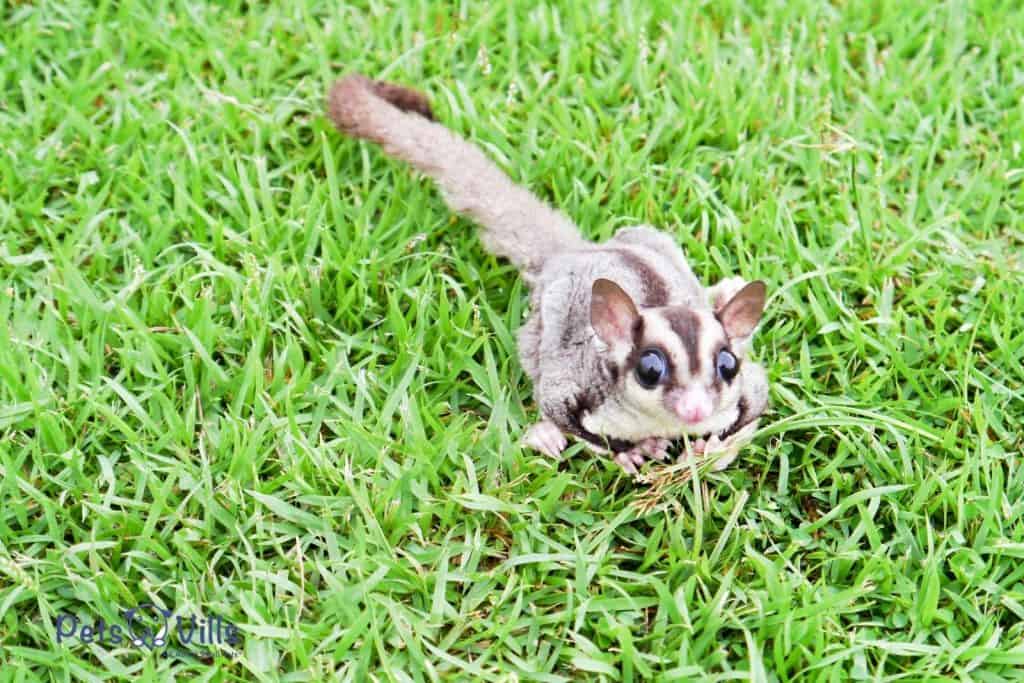
The first thing most people do when they realize they’re overweight is start working out (5). So increasing the exercise levels for your fat sugar glider will help reduce the weight.
Regular exercise should go hand in hand with a balanced diet to avoid raising a chunky sugar glider.
Add climbers and cage vines to their cage to encourage playing and climbing (6). Also, play with them regularly to improve the levels of physical activity.
FAQ
How big is a full-grown sugar glider?
A full-grown sugar glider should weigh between 80 and 160 grams. Anything past that means the pet is obese.
Are male or female sugar gliders bigger?
Male sugar gliders are usually bigger than female sugar gliders. While male gliders weigh between 100 and 160 grams, females weigh 80 and 130 grams.
Conclusion
Rasing a fat sugar glider is a recipe for disaster for your pet. Critters shouldn’t be obese, and to avoid that, feed them a balanced diet and allow them plenty of exercise.
If you suspect your glider is overweight, weigh it and see if its weight is over the maximum of 160 grams.
If it is fat, then employ measures to make it lose weight.
Do you have any other tips on how to combat obesity in gliders? Please share them with us in the comments.
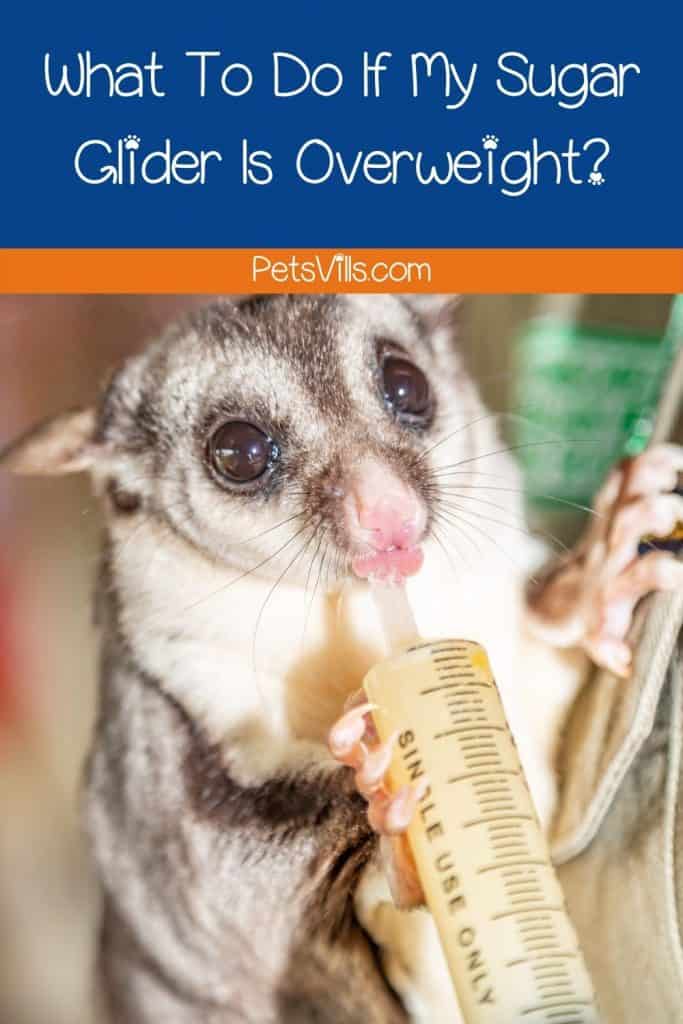
Do you have a fat sugar glider situation right now? Let us know what you think down in the comments about these solutions!
Resources
- 1.“Sugar Gliders Owning | VCA Animal Hospitals.” Vcahospitals.com, vcahospitals.com/know-your-pet/sugar-gliders-owning#:~:text=Physical%20Characteristics. Accessed 13 May 2022.
- 2. “Sugar Gliders – Feeding.” Vca_canada_corporate, vcacanada.com/know-your-pet/sugar-gliders-feeding. Accessed 13 May 2022.
- 3.Themes, U. F. O. “Sugar Gliders.” Veterian Key, 6 Sept. 2016, veteriankey.com/sugar-gliders-2/.
- 4.“Disorders and Diseases of Sugar Gliders – All Other Pets.” Veterinary Manual, www.msdvetmanual.com/all-other-pets/sugar-gliders/disorders-and-diseases-of-sugar-gliders.
- 5. NHS. Obesity [Internet]. NHS. NHS; 2019. Available from: https://www.nhs.uk/conditions/obesity/
- 6. Sugar Glider Care Guide | Long Island Exotic Pet Vet [Internet]. libirdexoticsvet. Available from: https://www.birdexoticsvet.com/sugar-glider-care-guide

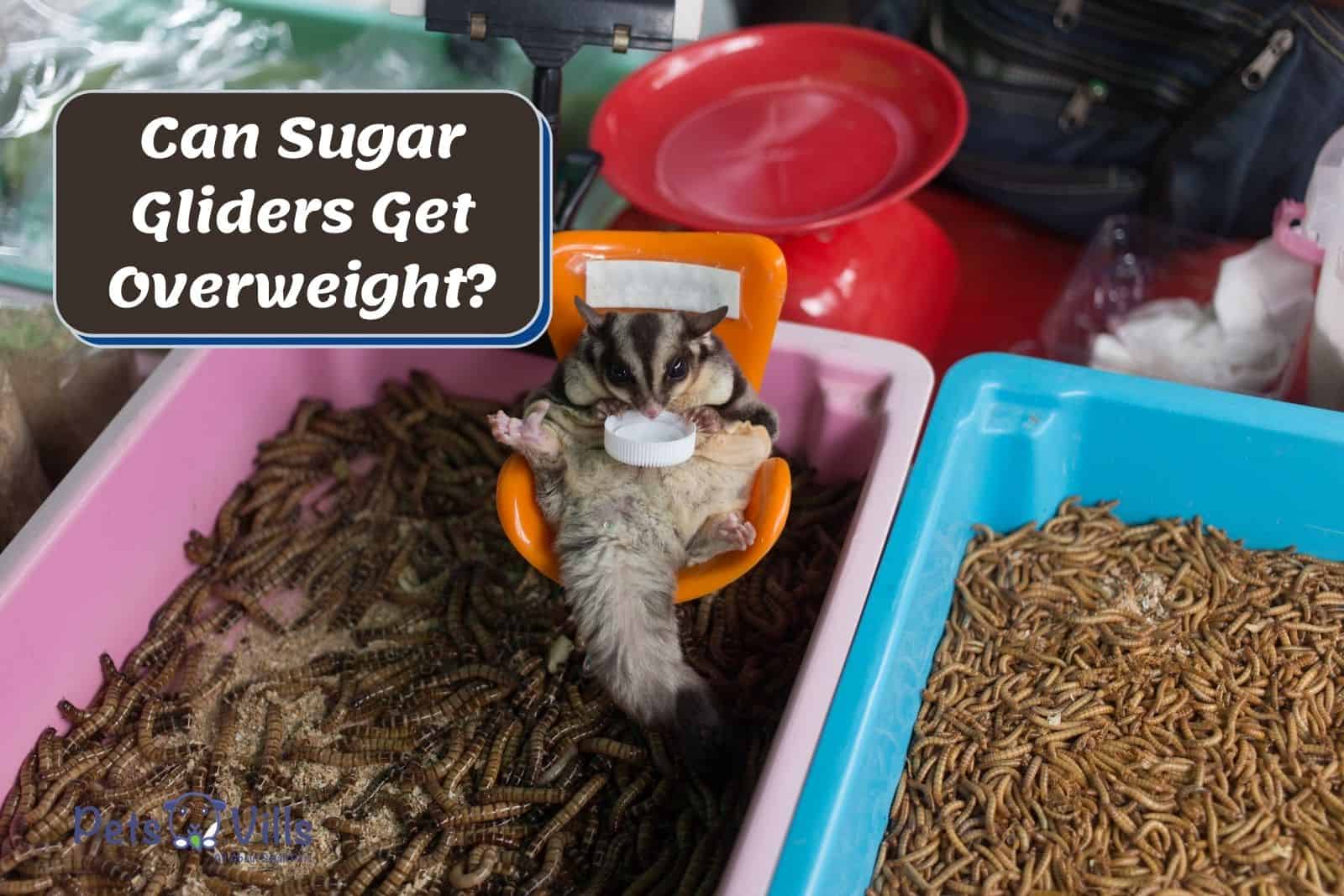


![Cute Sugar Glider Drinking From The Bottle [Must-Watch Video]](https://petsvills.com/wp-content/uploads/2022/09/Cute-Sugar-Glider-Drinking-From-The-Bottle-Must-Watch-Video-211x150.jpg)
